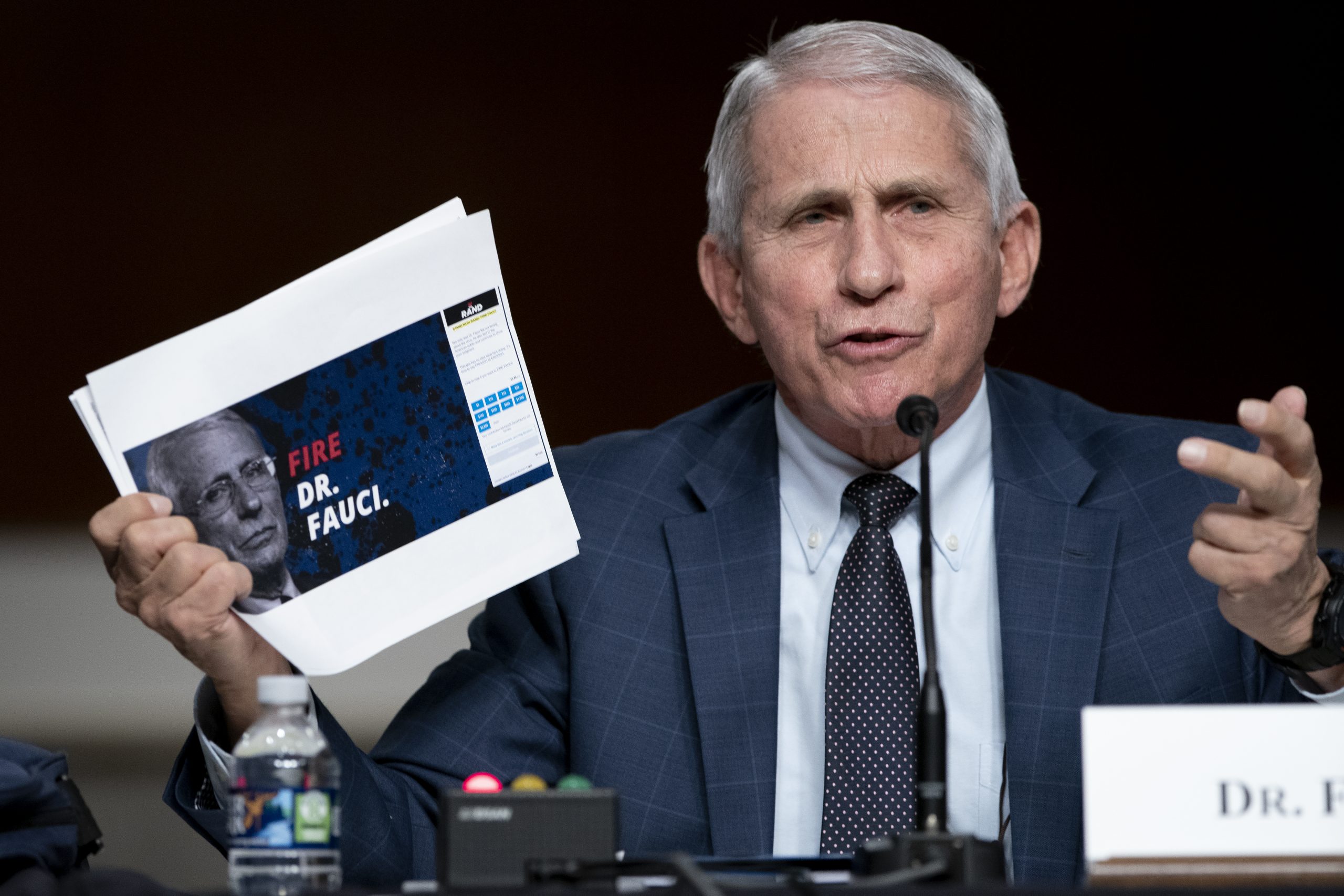Dr. Anthony Fauci and others “prompted” a scientific paper pushing back on the Wuhan lab leak hypothesis in the early days of the COVID-19 pandemic, emails show.
Scripps Research professor Kristian Andersen wrote to Nature magazine in February 2020 that he and other scientists were “prompted” by Fauci, then-director of the National Institute of Allergy and Infectious Diseases, Dr. Francis Collins, then-director of the National Institutes of Health, and Dr. Jeremy Farrar, director of the Wellcome Trust and now a chief scientist at the World Health Organization, to cast doubt on the theory.
WUHAN LAB LEAK DEBATE: WHAT WE KNOW AND WHAT WE DON’T
Andersen claimed that “there has been a lot of speculation, fearmongering, and conspiracies put forward in this space, and we thought that bringing some clarity to this discussion might be of interest” to the magazine.
The article published in Nature in March 2020, titled “The Proximal Origin of SARS-CoV-2,” contended that suspicious binding receptors in SARS-CoV-2 likely emerged through “natural selection” and not through lab manipulation, casting doubt on the possibility that COVID-19 originated at a Wuhan lab.

The new email was made public by the Republican-led Select Subcommittee on the Coronavirus Pandemic on Sunday evening.
The email was released as the Wuhan lab leak hypothesis has returned to the news in a big way.
The Office of the Director of National Intelligence released an assessment in 2021 stating that one U.S. intelligence agency, the FBI, assessed with “moderate confidence” that COVID-19 most likely emerged from a lab in Wuhan, while four U.S. spy agencies and the National Intelligence Council believed with just “low confidence” that COVID-19 most likely had a natural origin.
FBI Director Christopher Wray confirmed last week that the FBI has long believed COVID-19 originated at a Chinese government lab, and multiple reports recently revealed the Energy Department also believes with “low confidence” that the coronavirus started at a Wuhan lab.
Scientists consulting with the U.S. government early in the pandemic in 2020 believed COVID-19 originating from a lab in Wuhan was possible or even likely, but emails indicate Fauci and Collins worked to shut the hypothesis down.
Some previously released emails included notes from a Feb. 1, 2020, conference call in which at least 11 scientists theorized about the virus’s origin, with many leaning toward the lab leak. Farrar sent an email to Collins, Fauci, and Lawrence Tabak (now the NIH acting director) on Feb. 2, 2020, summarizing the conference call and indicating that some of the scientists believed the lab leak hypothesis was viable.
House Republicans said on Sunday that “only three days” after the conference call, “four participants” in the call, including Andersen, authored the Proximal Origin paper “and sent a draft to” Fauci and Collins and that “the paper was sent to Dr. Fauci for editing and approval” prior to its publication in Nature in March 2020.
Scripps said in an August 2021 letter on behalf of Andersen that “at every point, Dr. Andersen has objectively weighed all of the evidence available to him.” House Republicans called this “demonstrably false” on Sunday, noting that a February 2020 email from Andersen stated that “our main work over the last couple of weeks has been focused on trying to disprove any type of lab theory.”
Scripps also said in August 2021 that “as for the conference call of February 1, Dr. Fauci did not, in Dr. Andersen’s view, attempt to influence Dr. Andersen or any other member of the ad hoc working group of international subject matter experts with respect to any aspect of the discussion.”
House Republicans called this “demonstrably false” as well, noting that Andersen had told Nature in February 2020 that Fauci, Collins, and Farrar had “prompted” himself, as well as fellow scientists Eddie Holmes, Andrew Rambaut, Bob Garry, and Ian Lipkin, and that they “have been working through much of the (primarily) genetic data to provide agnostic and scientifically informed hypothesis around the origins of the virus.”
House Republicans said Sunday that “this email directly contradicts Scripps’ earlier statement that Dr. Fauci did not influence Dr. Andersen.”
Another previously released email, this one from Collins to Fauci and others and dated April 16, 2020, showed Collins trying to push back against reporting from Bret Baier of Fox News on the lab leak hypothesis. Baier cited multiple sources who had been briefed on the origins of the virus and believed it had sprung from the lab.
“Wondering if there is something NIH can do to help put down this very destructive conspiracy, with what seems to be growing momentum,” Collins wrote. “I hoped the Nature Medicine article [casting doubt on the lab leak] on the genomic sequence of SARS-CoV-2 would settle this. But probably didn’t get much visibility. Anything more we can do?”
A day later, Fauci replied to Collins, “I would not do anything about this right now. It is a shiny object that will go away in time.”
CLICK HERE TO READ MORE FROM THE WASHINGTON EXAMINER
But when asked about the possibility of a lab leak during a White House press conference that day, Fauci argued in favor of a natural origin: “There was a study recently that we can make available to you, where a group of highly qualified evolutionary virologists looked at the sequences there and the sequences in bats as they evolve. And the mutations that it took to get to the point where it is now is totally consistent with a jump of a species from an animal to a human.”
NIH continues to fund coronavirus studies conducted by EcoHealth Alliance despite concerns from Republicans that the group assisted with gain-of-function research in Wuhan.

